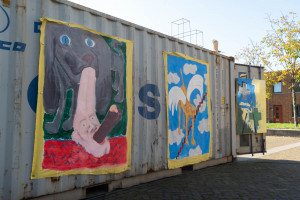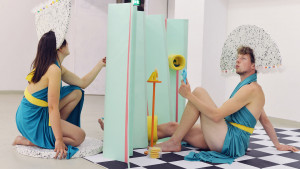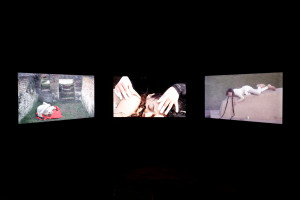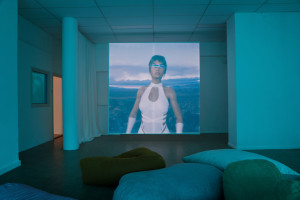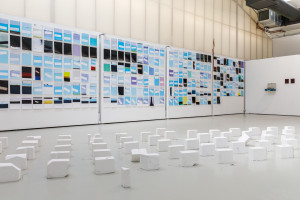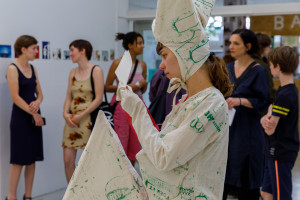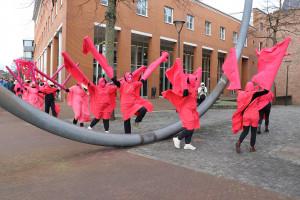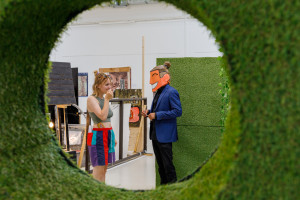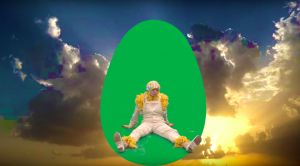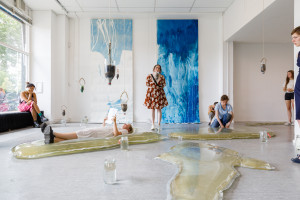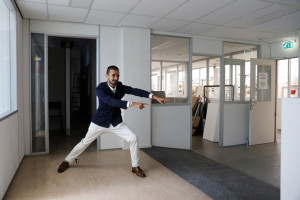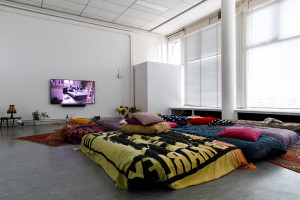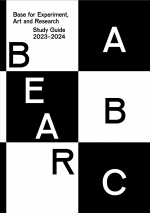

A Foundation to Build On
The first year of BEAR is designed to introduce students to the adventure of studying art. Guided by experienced practitioners from the field of contemporary art, it offers a space to experiment with materials and ideas. The programme offers a wide range of classes focussing on a particular medium or approach — each of these blends making and thinking in a particular way. Artistic or theoretical disciplines are never an end in itself, but a space to explore the possibilities they offer for artistic expression and development.
Another focus is an introduction to the professional field. This ranges from references brought in by teachers during classes, to theory courses and field trips. All activities of the first year are designed to lay the foundation for the next years to develop a process-driven way of working, which pairs the pleasure of making with a critical-reflective attitude.
Gerelateerd
| Module | Semester 1 Code | EC | Semester 2 Code | EC |
| Theme Studio 3D | B-BR-1T3DS1-23 | 5 | B-BR-1T3DS2-23 | 5 |
| Theme Studio 2D | B-BR-1T2DS1-23 | 5 | B-BR-1T2DS2-23 | 5 |
| Theme Studio Lens-Based | B-BR-1TLBS1-23 | 5 | B-BR-1TLBS2-23 | 5 |
| Theme Studio Digital practices | B-BR-1TDPS1-23 | 2.5 | B-BR-1TDPS2-23 | 2.5 |
| Exhibition | B-BR-1EXS1-23 | 2.5 | B-BR-1EXS2-23 | 2.5 |
| Studio Practice | B-BR-1SPS1-23 | 2 | B-BR-1SPS2-23 | 2 |
| ThINK Theory Block 1 | B-BR-1THKB1-23 | 2 | ||
| ThINK Theory Block 2 | B-BR-1THKB2-23 | 2 | ||
| ThINK Theory Block 3 | B-BR-1THKB3-23 | 2 | ||
| ThINK Theory Block 4 | B-BR-1THKB4-23 | 2 | ||
| Artistic Research (Bootcamp) | B-BR-1AR-23 | 2 | ||
| How to Connect? | B-BR-1HCS1-23 | 2 | ||
| Lectures/Excursions | B-BR-1PPS1-23 | 1 | B-BR-1PPS2-23 | 1 |
| Project (Pleasure Island) | B-BR-PR-23 | 1 | ||
| Project (Collectively) | B-BR-1PCS2-23 | 1 | ||
| Total EC | 29 | 31 |

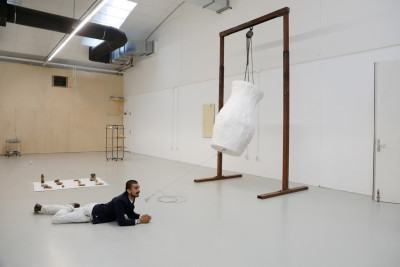
Advanced Experimentation
In BEAR 2, students move from assignment-driven to self- directed experimentation, to further develop the skills and approaches that were offered in BEAR 1. The various course components are designed to support students in making choices and developing focus. This marks a shift in working and thinking that requires an ability to formulate questions or interests, and to take concrete steps to translate these into one’s working process. The structure of the year and the various components allow for a continuous movement between making, experimenting and reflecting, as well as between individual and collective projects.
Gerelateerd
| Module | Semester 3 Code | EC | Semester 4 Code | EC |
| Studio Practice and Research | B-BR-2PRS3-23 | 15 | B-BR-2PRS4-23 | 13 |
| Practitioners | B-BR-2PAS3-23 | 2 | B-BR-2PAS4-23 | 2 |
| Projects | B-BR-2PSS3-23 | 8 | B-BR-2PSS4-23 | 8 |
| Theory Blocks | B-BR-2TB1-23 | 4 | B-BR-2TB2-23 | 5 |
| Lectures/Excursions | B-BR-2LES3-23 | 1 | B-BR-2LES4-23 | 1 |
| Collectively | B-BR-2COS4-23 | 1 | ||
| Total EC | 30 | 30 |


Specialising, Articulating
The course components of BEAR 3 aim to teach students how to develop and follow a more continuous line in their work. This involves articulating ideas and exploring what connects projects, through a more explicit reflection on the working process, the work and its actual or desired context. Compared to BEAR 2, students work under more indirect supervision by their tutor and other teachers. As part of Studio Practice and Research, as well as Practitioners, they are supported in making well-motivated choices in terms of projects they engage in, and identifying the skills and knowledge they need to develop to advance their practice. At the same time, they are expected, at this stage of their studies, to understand and embrace the open-endedness of artistic processes and to use this as an opportunity to challenge their own expectations, and when presenting work, those of others.
Gerelateerd
| Module | Semester 5 Code | EC | Semester 6 Code | EC |
| Studio Practice and Research | B-BR-3PRS5-23 | 15 | B-BR-3PRS6-23 | 11 |
| Practitioners | B-BR-3PAS5-23 | 2 | B-BR-3PAS6-23 | 2 |
| Projects | B-BR-3PRS5-23 | 8 | B-BR-3PRS6-23 | 8 |
| Theory Blocks | B-BR-3TB3-23 | 4 | B-BR-3TB4-23 | 5 |
| Lectures/Excursions | B-BR-3LES5-23 | 1 | B-BR-3LES6-23 | 1 |
| Collectively | B-BR-3COS6-23 | 1 | ||
| How to Connect? | B-BR-3HCS6-23 | 2 | ||
| Total EC | 30 | 30 |


Building a Practice
Building a practice as an artist is as much about attaining focus, acquiring skills and specialised knowledge, as it is about continuously cultivating a curiosity for the new. The guiding principle in BEAR 4 is to support students in developing a finished body of work for the graduation exhibition, while challenging them to engage in a thorough research process in which they are not afraid to question their own work and their positioning. Studying in BEAR 4 means standing on a threshold: structuring a work process with academic rigour, while anticipating a world beyond.
The core of BEAR 4 is the individual work of the students, in which all lines of the programme come together. They learn to unpack, question and deepen their practice through a focused research trajectory, while broadening and deepening their material knowledge and technical skills, following what the work needs. As BEAR 4 is the graduation year, students are trained in practical skills that are needed from a professional perspective, such as applying for funding and residencies, self-organising as artists, and starting a business.
Gerelateerd
| Module | Semester 7 Code | EC | Semester 8 Code | EC |
| Studio Practice and Research | B-BR-4PRS7-23 | 11 | ||
| Green Light | B-BR-4GLS8-23 | 18 | ||
| Graduation Exhibition | B-BR-4GES8-23 | 11 | ||
| Research & Presentation (Pitch) | B-BR-4RPS7-23 | 3 | ||
| Graduation Research (File and Interview) | B-BR-4FIS8-23 | 3 | ||
| Presentation Grad. Research (AR Festival) | B-BR-4ARFS8-23 | 3 | ||
| Practitioners | B-BR-4PAS7-23 | 2 | B-BR-4PAS8-23 | 2 |
| Internship/Self-Organised Project | B-BR-4IPS7-23 | 4 | ||
| Lectures/Excursions | B-BR-4LES7-23 | 1 | ||
| How to Connect? | B-BR-4HCS7-23 | 1 | B-BR-4HCS8-23 | 1 |
| Total EC | 22 | 38 |
BEAR Fine Art Finals 2020 - Benjamin Francis
